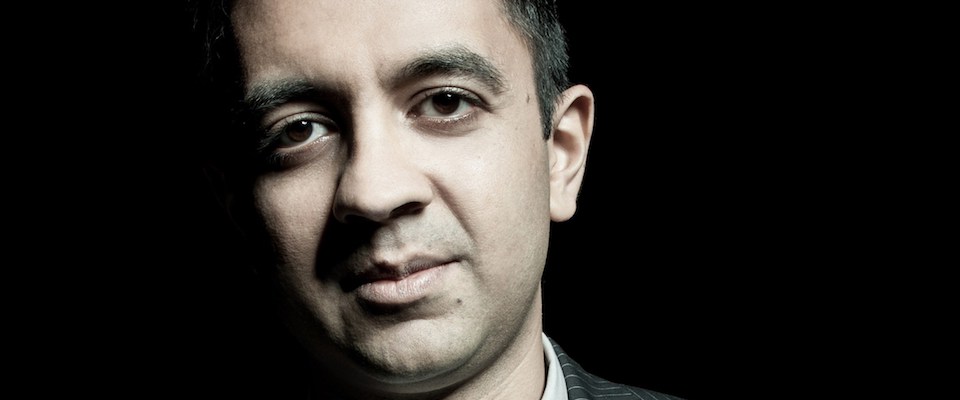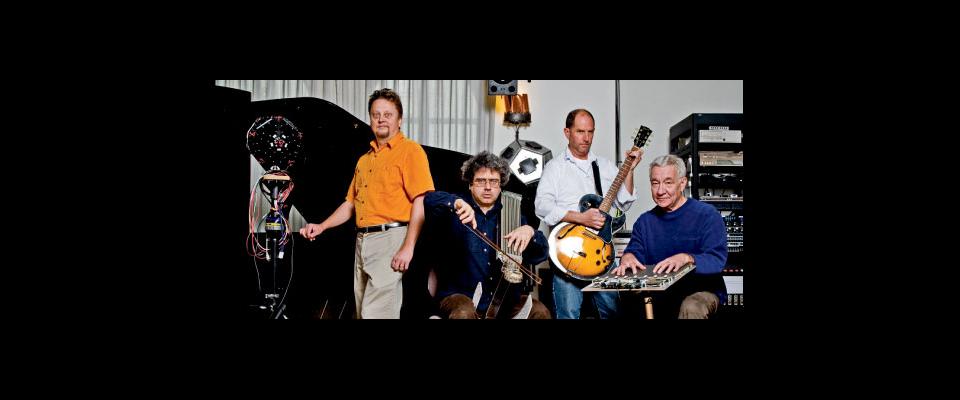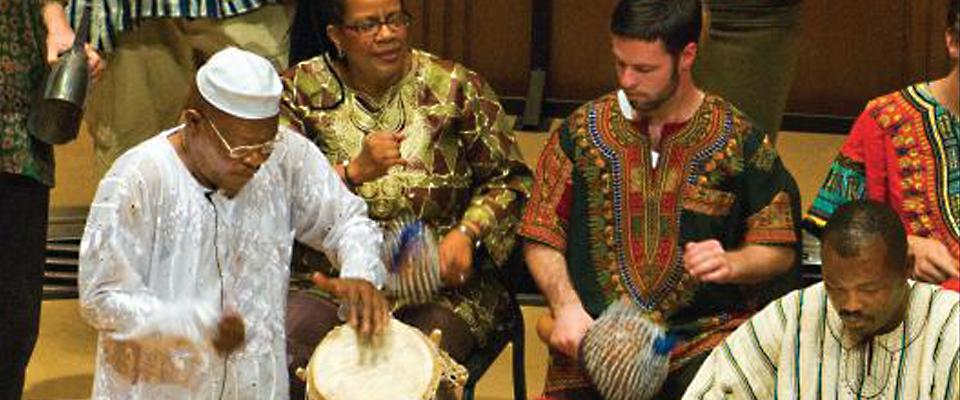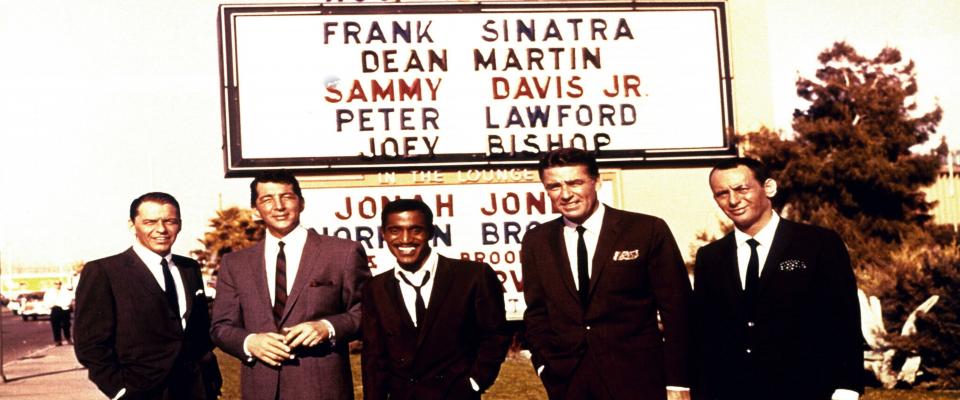A couples counselor could have warned Vijay Iyer that the relationship was doomed, but he needed to figure it out for himself. When he arrived at UC Berkeley in the summer of 1992 to start a graduate program in physics, Iyer was also nursing a simmering passion for jazz. The pianist quickly started connecting with some of the Bay Area’s leading improvisers, and after two years, he found himself in something of a crisis—uninspired by his academic courses while increasingly drawn to intensive jazz sessions.
Looking back, Iyer realized that he came to Cal thinking that “I would learn how to love physics, which is not a great place to enter a Ph.D. program,” he says. Instead, he changed his course of study to focus on music, a path that’s led to a 2013 MacArthur “Genius” Fellowship, a professorship at Harvard, and an extraordinary array of collaborations as player and composer that have played a central role in defining contemporary jazz.
He’s now in the midst of a burst of activity, including last month’s debut at the famed New York jazz club Village Vanguard with his long-running trio, high-profile summer-festival performances with his sextet at Newport and Monterey, and a stint as music director of the June 8–11 Ojai Music Festival. Iyer will bring the same ambitious genre-bending program to Cal between June 15-17 with Ojai at Berkeley, which is co-presented by Cal Performances.

Iyer credits the late David Wessel, the founder of Cal’s multidisciplinary Center for New Music and Audio Technologies (CNMAT), with keeping him on track to earn his doctorate. Wessel helped him design an independent doctoral program and served as lead advisor on Iyer’s dissertation, “Microstructures of Feel, Macrostructures of Sound: Embodied Cognition in West African and African-American Musics.”
“David was pretty amazing at giving people the space to become themselves,” says Iyer, 45. “CNMAT had his imprint. It was very accommodating, and with him as a leader, educator and thinker, it was very welcoming of different perspectives. David was good at finding people, and he found me. I don’t know who I’d be today without him.”
The impressive range of music Iyer presents at Ojai at Berkeley gives a good sense of his creative scope. The festival, opens Thursday with “A Vijay Iyer Sampler,” a performance by his duo with trumpet explorer Wadada Leo Smith featuring compositions inspired by Iranian-born visual artist Shirin Neshat. They documented the project, recently named by the Jazz Journalists Association as the year’s best duo, on the critically hailed 2016 album “A Cosmic Rhythm with Each Stroke” (ECM).

“The conductor isn’t generating a sense of pulse. Elvin Jones used to say the drummer is the conductor. That’s how I envisioned it. Not that the orchestra is an extension of the trio, an appendage. They have their own palette, set of colors and spectrum of possibilities. They’re giving it breath. As the rhythm section, the tactile side of the ensemble, everything we do is with our hands. The winds and brass are more connected with the voice, lungs and air, which is an important contrast.”
“to those familiar with his penchant for progressive politics and explorations of the role of the artist, it won’t be surprising that he has used it as a forum for investigating larger issues.”
Iyer’s new concerto for violin and chamber orchestra, “Trouble,” featuring violinist Jennifer Koh, will also be performed at the festival. It’s not the first piece he’s written for her, but the Cal Performances co-commission is by far the most ambitious, setting Koh amid the versatile International Contemporary Ensemble conducted by Steven Schick. “Jenny is a virtuoso who brings a really exacting standard to everything she does,” Iyer says.
“She’s dealt with a lot of new music, but is also an amazing interpreter of the older repertoire. It’s been great getting her perspective on how a violinist can function with and against a chamber orchestra. There are a lot of issues about balance, making sure the soloist is heard, but also larger narrative and emotional questions about what is the role of the soloist. What can the soloist elicit or bring about in the context of performance, in the context of an audience?”
This is Iyer’s first opportunity to write a concerto, and to those familiar with his penchant for progressive politics and explorations of the role of the artist, it won’t be surprising that he has used it as a forum for investigating larger issues. He drew the title from a phrase often used by Congressman and civil rights hero John Lewis: “necessary trouble.” One of the movements is dedicated to Vincent Chin, the victim of a notorious 1982 hate crime for which his two killers received three years of probation. “Where can we lead an audience, to what kind of experience? I called the piece ‘Trouble’ because we’re in trouble, and as John Lewis says, the answer to trouble is more trouble.”





















